
Info
Moonrise over the Sea
Caspar David Friedrich
1822
Alte Nationalgalerie
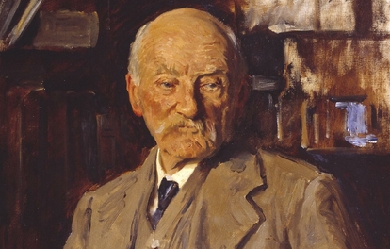
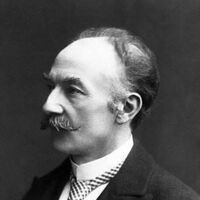
Thomas Hardy (2 June 1840 – 11 January 1928) was an English novelist and poet. While his works typically belong to the Naturalism movement, several poems display elements of the previous Romantic and Enlightenment periods of literature, such as his fascination with the supernatural. While he regarded himself primarily as a poet who composed novels mainly for financial gain, he became and continues to be widely regarded for his novels, such as Tess of the d'Urbervilles and Far from the Madding Crowd. Hardy's poetry, first published in his fifties, has come to be as well regarded as his novels and has had a significant influence over modern English poetry, especially after The Movement poets of the 1950s and 1960s cited Hardy as a major figure.
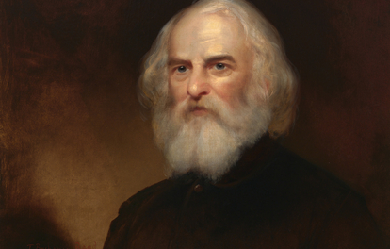
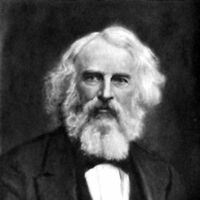
Henry Wadsworth Longfellow (February 27, 1807 – March 24, 1882) was an American poet and educator whose works include "Paul Revere's Ride", The Song of Hiawatha, and Evangeline. He was also the first American to translate Dante Alighieri's The Divine Comedy and was one of the five Fireside Poets. Longfellow was born in Portland, Maine, then part of Massachusetts, and studied at Bowdoin College. After spending time in Europe he became a professor at Bowdoin and, later, at Harvard College. His first major poetry collections were Voices of the Night (1839) and Ballads and Other Poems (1841). Longfellow retired from teaching in 1854 to focus on his writing, living the remainder of his life in Cambridge, Massachusetts, in a former headquarters of George Washington. His first wife, Mary Potter, died in 1835 after a miscarriage. His second wife, Frances Appleton, died in 1861 after sustaining burns from her dress catching fire. After her death, Longfellow had difficulty writing poetry for a time and focused on his translation. He died in 1882.

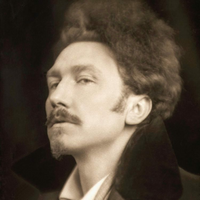
Ezra Weston Loomis Pound (30 October 1885 – 1 November 1972) was an American expatriate poet, critic and a major figure of the early modernist movement. His contribution to poetry began with his promotion of Imagism, a movement that derived its technique from classical Chinese and Japanese poetry, stressing clarity, precision and economy of language. His best-known works include Ripostes (1912), Hugh Selwyn Mauberley (1920), and his unfinished 120-section epic, The Cantos (1917–1969). Working in London in the early 20th century as foreign editor of several American literary magazines, Pound helped to discover and shape the work of contemporaries such as T. S. Eliot, James Joyce, Robert Frost, and Ernest Hemingway. He was responsible for the publication in 1915 of Eliot's “The Love Song of J. Alfred Prufrock,” and for the serialization from 1918 of Joyce's Ulysses. Hemingway wrote of him in 1925: “He defends [his friends] when they are attacked, he gets them into magazines and out of jail. ... He writes articles about them. He introduces them to wealthy women. He gets publishers to take their books. He sits up all night with them when they claim to be dying... he advances them hospital expenses and dissuades them from suicide.”
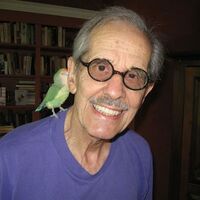
I was born in Hamilton, Ohio, in 1925, a confession that I am an old geezer. I served in the infantry during World War II, was wounded and discharged in 1946. I then obtained a B.A. degree with honors in English in 1949. Subsequently I taught in Cincinnati public schools and at the University of Cincinnati for the next 35 years. My poetry has appeared in: * Wall Street Journal * Hellas * Lyric * Envoi * Midwest Poetry Review (a sonnet won awards) * Aethlon * Light * Poet's View * Classical Outlook * Mind over Matter Several books have been self-published but Wormwood and Whines, a compilation of many of my poems, was published by Superior Books in 1999.
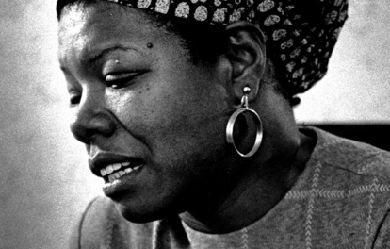
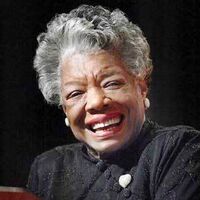
Maya Angelou (born Marguerite Ann Johnson; April 4, 1928 – May 28, 2014) was an American author and poet. She published seven autobiographies, three books of essays, and several books of poetry, and is credited with a list of plays, movies, and television shows spanning more than fifty years. She received dozens of awards and over thirty honorary doctoral degrees. Angelou is best known for her series of seven autobiographies, which focus on her childhood and early adult experiences. The first, I Know Why the Caged Bird Sings (1969), tells of her life up to the age of seventeen, and brought her international recognition and acclaim. Angelou's long list of occupations has included pimp, prostitute, night-club dancer and performer, cast-member of the musical Porgy and Bess, coordinator for Martin Luther King, Jr.'s Southern Christian Leadership Conference, author, journalist in Egypt and Ghana during the days of decolonization, and actor, writer, director, and producer of plays, movies, and public television programs.
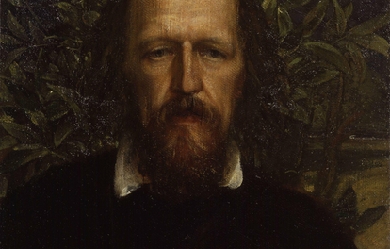
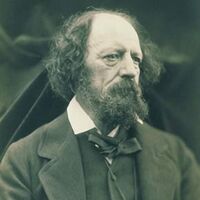
Alfred Tennyson, 1st Baron Tennyson, FRS (6 August 1809 – 6 October 1892) was Poet Laureate of the United Kingdom during much of Queen Victoria's reign and remains one of the most popular poets in the English language. A number of phrases from Tennyson’s work have become commonplaces of the English language, including “Nature, red in tooth and claw”, “'Tis better to have loved and lost / Than never to have loved at all”, “Theirs not to reason why, / Theirs but to do and die”, “My strength is as the strength of ten, / Because my heart is pure”, “Knowledge comes, but Wisdom lingers”, and “The old order changeth, yielding place to new”. He is the ninth most frequently quoted writer in The Oxford Dictionary of Quotations.
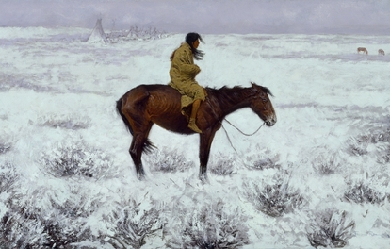
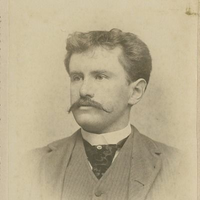
William Sydney Porter (September 11, 1862– June 5, 1910), known by his pen name O. Henry, was an American short story writer. His stories are known for their surprise endings. Biography Early life William Sidney Porter was born on September 11, 1862, in Greensboro, North Carolina. He changed the spelling of his middle name to Sydney in 1898. His parents were Dr. Algernon Sidney Porter (1825–88), a physician, and Mary Jane Virginia Swaim Porter (1833–65). William’s parents had married on April 20, 1858. When William was three, his mother died from tuberculosis, and he and his father moved into the home of his paternal grandmother. As a child, Porter was always reading, everything from classics to dime novels; his favorite works were Lane’s translation of One Thousand and One Nights and Burton’s Anatomy of Melancholy. Porter graduated from his aunt Evelina Maria Porter’s elementary school in 1876. He then enrolled at the Lindsey Street High School. His aunt continued to tutor him until he was fifteen. In 1879, he started working in his uncle’s drugstore in Greensboro, and on August 30, 1881, at the age of nineteen, Porter was licensed as a pharmacist. At the drugstore, he also showed off his natural artistic talents by sketching the townsfolk. Move to Texas Porter traveled with Dr. James K. Hall to Texas in March 1882, hoping that a change of air would help alleviate a persistent cough he had developed. He took up residence on the sheep ranch of Richard Hall, James’ son, in La Salle County and helped out as a shepherd, ranch hand, cook, and baby-sitter. While on the ranch, he learned bits of Spanish and German from the mix of immigrant ranch hands. He also spent time reading classic literature. Porter’s health did improve. He traveled with Richard to Austin in 1884, where he decided to remain and was welcomed into the home of Richard’s friends, Joseph Harrell and his wife. Porter resided with the Harrells for three years. He went to work briefly for the Morley Brothers Drug Company as a pharmacist. Porter then moved on to work for the Harrell Cigar Store located in the Driskill Hotel. He also began writing as a sideline and wrote many of his early stories in the Harrell house. As a young bachelor, Porter led an active social life in Austin. He was known for his wit, story-telling and musical talents. He played both the guitar and mandolin. He sang in the choir at St. David’s Episcopal Church and became a member of the “Hill City Quartette”, a group of young men who sang at gatherings and serenaded young women of the town. Porter met and began courting Athol Estes, then seventeen years old and from a wealthy family. Historians believe Porter met Athol at the laying of the cornerstone of the Texas State Capitol on March 2, 1885. Her mother objected to the match because Athol was ill, suffering from tuberculosis. On July 1, 1887, Porter eloped with Athol and were married in the parlor of the home of Reverend R. K. Smoot, pastor of the Central Presbyterian Church, where the Estes family attended church. The couple continued to participate in musical and theater groups, and Athol encouraged her husband to pursue his writing. Athol gave birth to a son in 1888, who died hours after birth, and then a daughter, Margaret Worth Porter, in September 1889. Porter’s friend Richard Hall became Texas Land Commissioner and offered Porter a job. Porter started as a draftsman at the Texas General Land Office (GLO) on January 12, 1887 at a salary of $100 a month, drawing maps from surveys and fieldnotes. The salary was enough to support his family, but he continued his contributions to magazines and newspapers. In the GLO building, he began developing characters and plots for such stories as “Georgia’s Ruling” (1900), and “Buried Treasure” (1908). The castle-like building he worked in was even woven into some of his tales such as "Bexar Scrip No. 2692" (1894). His job at the GLO was a political appointment by Hall. Hall ran for governor in the election of 1890 but lost. Porter resigned on January 21, 1891, the day after the new governor, Jim Hogg, was sworn in. The same year, Porter began working at the First National Bank of Austin as a teller and bookkeeper at the same salary he had made at the GLO. The bank was operated informally, and Porter was apparently careless in keeping his books and may have embezzled funds. In 1894, he was accused by the bank of embezzlement and lost his job but was not indicted at the time. He then worked full-time on his humorous weekly called The Rolling Stone, which he started while working at the bank. The Rolling Stone featured satire on life, people and politics and included Porter’s short stories and sketches. Although eventually reaching a top circulation of 1500, The Rolling Stone failed in April 1895, since the paper never provided an adequate income. However, his writing and drawings had caught the attention of the editor at the Houston Post. Porter and his family moved to Houston in 1895, where he started writing for the Post. His salary was only $25 a month, but it rose steadily as his popularity increased. Porter gathered ideas for his column by loitering in hotel lobbies and observing and talking to people there. This was a technique he used throughout his writing career. While he was in Houston, federal auditors audited the First National Bank of Austin and found the embezzlement shortages that led to his firing. A federal indictment followed, and he was arrested on charges of embezzlement. Flight and return Porter’s father-in-law posted bail to keep him out of jail. He was due to stand trial on July 7, 1896, but the day before, as he was changing trains to get to the courthouse, an impulse hit him. He fled, first to New Orleans and later to Honduras, with which the United States had no extradition treaty at that time. William lived in Honduras for only six months, until January 1897. There he became friends with Al Jennings, a notorious train robber, who later wrote a book about their friendship. He holed up in a Trujillo hotel, where he wrote Cabbages and Kings, in which he coined the term “banana republic” to qualify the country, a phrase subsequently used widely to describe a small, unstable tropical nation in Latin America with a narrowly focused, agrarian economy. Porter had sent Athol and Margaret back to Austin to live with Athol’s parents. Unfortunately, Athol became too ill to meet Porter in Honduras as he had planned. When he learned that his wife was dying, Porter returned to Austin in February 1897 and surrendered to the court, pending trial. Athol Estes Porter died from tuberculosis (then known as consumption) on July 25, 1897. Porter had little to say in his own defense at his trial and was found guilty on February 17, 1898 of embezzling $854.08. He was sentenced to five years in prison and imprisoned on March 25, 1898, at the Ohio Penitentiary in Columbus, Ohio. Porter was a licensed pharmacist and was able to work in the prison hospital as the night druggist. He was given his own room in the hospital wing, and there is no record that he actually spent time in the cell block of the prison. He had fourteen stories published under various pseudonyms while he was in prison but was becoming best known as “O. Henry”, a pseudonym that first appeared over the story “Whistling Dick’s Christmas Stocking” in the December 1899 issue of McClure’s Magazine. A friend of his in New Orleans would forward his stories to publishers so that they had no idea that the writer was imprisoned. Porter was released on July 24, 1901, for good behavior after serving three years. He reunited with his daughter Margaret, now age 11, in Pittsburgh, Pennsylvania, where Athol’s parents had moved after Porter’s conviction. Margaret was never told that her father had been in prison—just that he had been away on business. Later life and death Porter’s most prolific writing period started in 1902, when he moved to New York City to be near his publishers. While there, he wrote 381 short stories. He wrote a story a week for over a year for the New York World Sunday Magazine. His wit, characterization, and plot twists were adored by his readers but often panned by critics. Porter married again in 1907 to childhood sweetheart Sarah (Sallie) Lindsey Coleman, whom he met again after revisiting his native state of North Carolina. Sarah Lindsey Coleman was herself a writer and wrote a romanticized and fictionalized version of their correspondence and courtship in her novella Wind of Destiny. Porter was a heavy drinker, and by 1908, his markedly deteriorating health affected his writing. In 1909, Sarah left him, and he died on June 5, 1910, of cirrhosis of the liver, complications of diabetes, and an enlarged heart. After funeral services in New York City, he was buried in the Riverside Cemetery in Asheville, North Carolina. His daughter, Margaret Worth Porter, had a short writing career from 1913 to 1916. She married cartoonist Oscar Cesare of New York in 1916; they were divorced four years later. She died of tuberculosis in 1927 and is buried next to her father. Stories O. Henry’s stories frequently have surprise endings. In his day he was called the American answer to Guy de Maupassant. While both authors wrote plot twist endings, O. Henry’s stories were considerably more playful. His stories are also known for witty narration. Most of O. Henry’s stories are set in his own time, the early 20th century. Many take place in New York City and deal for the most part with ordinary people: policemen, waitresses, etc. O. Henry’s work is wide-ranging, and his characters can be found roaming the cattle-lands of Texas, exploring the art of the con-man, or investigating the tensions of class and wealth in turn-of-the-century New York. O. Henry had an inimitable hand for isolating some element of society and describing it with an incredible economy and grace of language. Some of his best and least-known work is contained in Cabbages and Kings, a series of stories each of which explores some individual aspect of life in a paralytically sleepy Central American town, while advancing some aspect of the larger plot and relating back one to another. Cabbages and Kings was his first collection of stories, followed by The Four Million. The second collection opens with a reference to Ward McAllister’s “assertion that there were only 'Four Hundred’ people in New York City who were really worth noticing. But a wiser man has arisen—the census taker—and his larger estimate of human interest has been preferred in marking out the field of these little stories of the ‘Four Million.’” To O. Henry, everyone in New York counted. He had an obvious affection for the city, which he called “Bagdad-on-the-Subway”, and many of his stories are set there—while others are set in small towns or in other cities. His final work was “Dream”, a short story intended for the magazine The Cosmopolitan but left incomplete at the time of his death. Among his most famous stories are: “The Gift of the Magi” about a young couple, Jim and Della, who are short of money but desperately want to buy each other Christmas gifts. Unbeknownst to Jim, Della sells her most valuable possession, her beautiful hair, in order to buy a platinum fob chain for Jim’s watch; while unbeknownst to Della, Jim sells his own most valuable possession, his watch, to buy jeweled combs for Della’s hair. The essential premise of this story has been copied, re-worked, parodied, and otherwise re-told countless times in the century since it was written. “The Ransom of Red Chief”, in which two men kidnap a boy of ten. The boy turns out to be so bratty and obnoxious that the desperate men ultimately pay the boy’s father $250 to take him back. “The Cop and the Anthem” about a New York City hobo named Soapy, who sets out to get arrested so that he can be a guest of the city jail instead of sleeping out in the cold winter. Despite efforts at petty theft, vandalism, disorderly conduct, and “mashing” with a young prostitute, Soapy fails to draw the attention of the police. Disconsolate, he pauses in front of a church, where an organ anthem inspires him to clean up his life—and is ironically charged for loitering and sentenced to three months in prison. “A Retrieved Reformation”, which tells the tale of safecracker Jimmy Valentine, recently freed from prison. He goes to a town bank to case it before he robs it. As he walks to the door, he catches the eye of the banker’s beautiful daughter. They immediately fall in love and Valentine decides to give up his criminal career. He moves into the town, taking up the identity of Ralph Spencer, a shoemaker. Just as he is about to leave to deliver his specialized tools to an old associate, a lawman who recognizes him arrives at the bank. Jimmy and his fiancée and her family are at the bank, inspecting a new safe when a child accidentally gets locked inside the airtight vault. Knowing it will seal his fate, Valentine opens the safe to rescue the child. However, much to Valentine’s surprise, the lawman denies recognizing him and lets him go. “The Duplicity of Hargraves”. A short story about a nearly destitute father and daughter’s trip to Washington, D.C. “The Caballero’s Way”, in which Porter’s most famous character, the Cisco Kid, is introduced. It was first published in 1907 in the July issue of Everybody’s Magazine and collected in the book Heart of the West that same year. In later film and TV depictions, the Kid would be portrayed as a dashing adventurer, perhaps skirting the edges of the law, but primarily on the side of the angels. In the original short story, the only story by Porter to feature the character, the Kid is a murderous, ruthless border desperado, whose trail is dogged by a heroic Texas Ranger. The twist ending is, unusually for Porter, tragic. Pen name Porter used a number of pen names (including “O. Henry” or “Olivier Henry”) in the early part of his writing career; other names included S.H. Peters, James L. Bliss, T.B. Dowd, and Howard Clark. Nevertheless, the name “O. Henry” seemed to garner the most attention from editors and the public, and was used exclusively by Porter for his writing by about 1902. He gave various explanations for the origin of his pen name. In 1909 he gave an interview to The New York Times, in which he gave an account of it: It was during these New Orleans days that I adopted my pen name of O. Henry. I said to a friend: “I’m going to send out some stuff. I don’t know if it amounts to much, so I want to get a literary alias. Help me pick out a good one.” He suggested that we get a newspaper and pick a name from the first list of notables that we found in it. In the society columns we found the account of a fashionable ball. “Here we have our notables,” said he. We looked down the list and my eye lighted on the name Henry, “That’ll do for a last name,” said I. “Now for a first name. I want something short. None of your three-syllable names for me.” “Why don’t you use a plain initial letter, then?” asked my friend. “Good,” said I, “O is about the easiest letter written, and O it is.” A newspaper once wrote and asked me what the O stands for. I replied, “O stands for Olivier, the French for Oliver.” And several of my stories accordingly appeared in that paper under the name Olivier Henry. William Trevor writes in the introduction to The World of O. Henry: Roads of Destiny and Other Stories (Hodder & Stoughton, 1973) that “there was a prison guard named Orrin Henry” in the Ohio State Penitentiary “whom William Sydney Porter... immortalised as O. Henry”. According to J. F. Clarke, it is from the name of the French pharmacist Etienne Ossian Henry, whose name is in the U. S. Dispensary which Porter used working in the prison pharmacy. Writer and scholar Guy Davenport offers his own hypothesis: “The pseudonym that he began to write under in prison is constructed from the first two letters of Ohio and the second and last two of penitentiary.” Legacy The O. Henry Award is a prestigious annual prize named after Porter and given to outstanding short stories. A film was made in 1952 featuring five stories, called O. Henry’s Full House. The episode garnering the most critical acclaim was “The Cop and the Anthem” starring Charles Laughton and Marilyn Monroe. The other stories are “The Clarion Call”, “The Last Leaf”, “The Ransom of Red Chief” (starring Fred Allen and Oscar Levant), and “The Gift of the Magi”. The O. Henry House and O. Henry Hall, both in Austin, Texas, are named for him. O. Henry Hall, now owned by the Texas State University System, previously served as the federal courthouse in which O. Henry was convicted of embezzlement. Porter has elementary schools named for him in Greensboro, North Carolina (William Sydney Porter Elementary) and Garland, Texas (O. Henry Elementary), as well as a middle school in Austin, Texas (O. Henry Middle School). The O. Henry Hotel in Greensboro is also named for Porter, as is US 29 which is O. Henry Boulevard. In 1962, the Soviet Postal Service issued a stamp commemorating O. Henry’s 100th birthday. On September 11, 2012, the U.S. Postal Service issued a stamp commemorating the 150th anniversary of O. Henry’s birth. On November 23, 2011, Barack Obama quoted O. Henry while granting pardons to two turkeys named “Liberty” and “Peace”. In response, political science professor P. S. Ruckman, Jr., and Texas attorney Scott Henson filed a formal application for a posthumous pardon in September 2012, the same month that the U.S. Postal Service issued its O. Henry stamp. Previous attempts were made to obtain such a pardon for Porter in the administrations of Woodrow Wilson, Dwight Eisenhower, and Ronald Reagan, but no one had ever bothered to file a formal application. Ruckman and Henson argued that Porter deserved a pardon because (1) he was a law-abiding citizen prior to his conviction; (2) his offense was minor; (3) he had an exemplary prison record; (4) his post-prison life clearly indicated rehabilitation; (5) he would have been an excellent candidate for clemency in his time, had he but applied for pardon; (6) by today’s standards, he remains an excellent candidate for clemency; and (7) his pardon would be a well-deserved symbolic gesture and more. O. Henry’s love of language inspired the O. Henry Pun-Off, an annual spoken word competition began in 1978 that takes place at the O. Henry House. Bibliography * Cabbages and Kings (1904) * The Four Million (1906), short stories * The Trimmed Lamp (1907), short stories: “The Trimmed Lamp”, “A Madison Square Arabian Night”, “The Rubaiyat of a Scotch Highball”, “The Pendulum”, “Two Thanksgiving Day Gentlemen”, “The Assessor of Success”, “The Buyer from Cactus City”, “The Badge of Policeman O’Roon”, “Brickdust Row”, “The Making of a New Yorker”, “Vanity and Some Sables”, “The Social Triangle”, “The Purple Dress”, "The Foreign Policy of Company 99", “The Lost Blend”, “A Harlem Tragedy”, “'The Guilty Party’”, “According to Their Lights”, “A Midsummer Knight’s Dream”, “The Last Leaf”, “The Count and the Wedding Guest”, “The Country of Elusion”, “The Ferry of Unfulfilment”, “The Tale of a Tainted Tenner”, “Elsie in New York” * Heart of the West (1907), short stories: “Hearts and Crosses”, “The Ransom of Mack”, “Telemachus, Friend”, “The Handbook of Hymen”, “The Pimienta Pancakes”, “Seats of the Haughty”, “Hygeia at the Solito”, “An Afternoon Miracle”, “The Higher Abdication”, "Cupid à la Carte", “The Caballero’s Way”, “The Sphinx Apple”, “The Missing Chord”, “A Call Loan”, “The Princess and the Puma”, “The Indian Summer of Dry Valley Johnson”, “Christmas by Injunction”, “A Chaparral Prince”, “The Reformation of Calliope” * The Voice of the City (1908), short stories: “The Voice of the City”, “The Complete Life of John Hopkins”, “A Lickpenny Lover”, “Dougherty’s Eye-opener”, “'Little Speck in Garnered Fruit’”, “The Harbinger”, “While the Auto Waits”, “A Comedy in Rubber”, “One Thousand Dollars”, “The Defeat of the City”, “The Shocks of Doom”, “The Plutonian Fire”, “Nemesis and the Candy Man”, “Squaring the Circle”, “Roses, Ruses and Romance”, “The City of Dreadful Night”, “The Easter of the Soul”, “The Fool-killer”, “Transients in Arcadia”, “The Rathskeller and the Rose”, “The Clarion Call”, “Extradited from Bohemia”, “A Philistine in Bohemia”, “From Each According to His Ability”, “The Memento” * The Gentle Grafter (1908), short stories: “The Octopus Marooned”, “Jeff Peters as a Personal Magnet”, “Modern Rural Sports”, “The Chair of Philanthromathematics”, “The Hand That Riles the World”, “The Exact Science of Matrimony”, “A Midsummer Masquerade”, “Shearing the Wolf”, “Innocents of Broadway”, “Conscience in Art”, “The Man Higher Up”, “Tempered Wind”, “Hostages to Momus”, “The Ethics of Pig” * Roads of Destiny (1909), short stories: “Roads of Destiny”, “The Guardian of the Accolade”, “The Discounters of Money”, “The Enchanted Profile”, “Next to Reading Matter”, “Art and the Bronco”, "Phœbe", “A Double-dyed Deceiver”, “The Passing of Black Eagle”, “A Retrieved Reformation”, “Cherchez la Femme”, “Friends in San Rosario”, “The Fourth in Salvador”, “The Emancipation of Billy”, “The Enchanted Kiss”, “A Departmental Case”, “The Renaissance at Charleroi”, “On Behalf of the Management”, “Whistling Dick’s Christmas Stocking”, “The Halberdier of the Little Rheinschloss”, “Two Renegades”, “The Lonesome Road” * Options (1909), short stories: “'The Rose of Dixie’”, “The Third Ingredient”, “The Hiding of Black Bill”, “Schools and Schools”, “Thimble, Thimble”, “Supply and Demand”, “Buried Treasure”, “To Him Who Waits”, “He Also Serves”, “The Moment of Victory”, “The Head-hunter”, “No Story”, “The Higher Pragmatism”, “Best-seller”, “Rus in Urbe”, “A Poor Rule” * Strictly Business (1910), short stories: “Strictly Business”, “The Gold That Glittered”, “Babes in the Jungle”, “The Day Resurgent”, “The Fifth Wheel”, “The Poet and the Peasant”, “The Robe of Peace”, “The Girl and the Graft”, “The Call of the Tame”, “The Unknown Quantity”, “The Thing’s the Play”, “A Ramble in Aphasia”, “A Municipal Report”, “Psyche and the Pskyscraper”, “A Bird of Bagdad”, “Compliments of the Season”, “A Night in New Arabia”, “The Girl and the Habit”, “Proof of the Pudding”, “Past One at Rooney’s”, “The Venturers”, “The Duel”, “'What You Want’” * Whirligigs (1910), short stories: “The World and the Door”, “The Theory and the Hound”, “The Hypotheses of Failure”, “Calloway’s Code”, “A Matter of Mean Elevation”, “Girl”, “Sociology in Serge and Straw”, “The Ransom of Red Chief”, “The Marry Month of May”, “A Technical Error”, “Suite Homes and Their Romance”, “The Whirligig of Life”, “A Sacrifice Hit”, “The Roads We Take”, “A Blackjack Bargainer, ”The Song and the Sergeant", “One Dollar’s Worth”, “A Newspaper Story”, “Tommy’s Burglar”, “A Chaparral Christmas Gift”, “A Little Local Colour”, “Georgia’s Ruling”, “Blind Man’s Holiday”, “Madame Bo-Peep of the Ranches” * Sixes and Sevens (1911), short stories: “The Last of the Troubadours”, “The Sleuths”, “Witches’ Loaves”, “The Pride of the Cities”, “Holding Up a Train”, “Ulysses and the Dogman”, “The Champion of the Weather”, “Makes the Whole World Kin”, “At Arms with Morpheus”, “A Ghost of a Chance”, “Jimmy Hayes and Muriel”, “The Door of Unrest”, “The Duplicity of Hargraves”, “Let Me Feel Your Pulse”, “October and June”, “The Church with an Overshot-Wheel”, “New York by Camp Fire Light”, “The Adventures of Shamrock Jolnes”, “The Lady Higher Up”, “The Greater Coney”, “Law and Order”, “Transformation of Martin Burney”, “The Caliph and the Cad”, “The Diamond of Kali”, “The Day We Celebrate” * Rolling Stones (1912), short stories: “The Dream”, “A Ruler of Men”, “The Atavism of John Tom Little Bear”, “Helping the Other Fellow”, “The Marionettes”, “The Marquis and Miss Sally”, “A Fog in Santone”, “The Friendly Call”, “A Dinner at———”, “Sound and Fury”, “Tictocq”, “Tracked to Doom”, “A Snapshot at the President”, “An Unfinished Christmas Story”, “The Unprofitable Servant”, “Aristocracy Versus Hash”, “The Prisoner of Zembla”, “A Strange Story”, “Fickle Fortune, or How Gladys Hustled”, “An Apology”, “Lord Oakhurst’s Curse”, "Bexar Scrip No. 2692” * Waifs and Strays (1917), short stories References Wikipedia—https://en.wikipedia.org/wiki/O._Henry

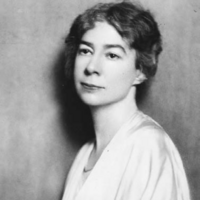
Sara Teasdale (August 8, 1884 – January 29, 1933) was an American lyric poet. She was born Sarah Trevor Teasdale in St. Louis, Missouri, and used the name Sara Teasdale Filsinger after her marriage in 1914. She had such poor health for so much of her childhood, home schooled until age 9, that it was only at age 10 that she was well enough to begin school. She started at Mary Institute in 1898, but switched to Hosmer Hall in 1899, graduating in 1903. I Shall Not Care WHEN I am dead and over me bright April Shakes out her rain-drenched hair, Tho' you should lean above me broken-hearted, I shall not care. I shall have peace, as leafy trees are peaceful When rain bends down the bough, And I shall be more silent and cold-hearted Than you are now.
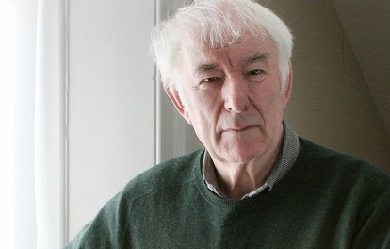
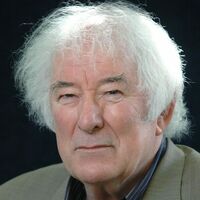
Seamus Justin Heaney (13 April 1939 – 30 August 2013) was an Irish poet, playwright and translator. He received the 1995 Nobel Prize in Literature. Among his best-known works is Death of a Naturalist (1966), his first major published volume. Heaney was and is still recognised as one of the principal contributors to poetry in Ireland during his lifetime. American poet Robert Lowell described him as “the most important Irish poet since Yeats”, and many others, including the academic John Sutherland, have said that he was “the greatest poet of our age”. Robert Pinsky has stated that “with his wonderful gift of eye and ear Heaney has the gift of the story-teller.” Upon his death in 2013, The Independent described him as “probably the best-known poet in the world”.


I am a 27-year-old Christian (the modern term for Follower of the Way). Some bands that I've drawn inspiration from include Demon Hunter, Skillet, Disturbed, Breaking Benjamin, All That Remains and War of Ages. I write lyrical poems, which I have been writing since I was 12 years old. A lot of my lyrics are based on life views and experiences, as well as struggles regarding my Christian faith. I am not ashamed and I will not shy away from admitting to my faith. I hope that my lyrics might open up solutions to readers that can relate to my lyrics. Thank you and God bless.
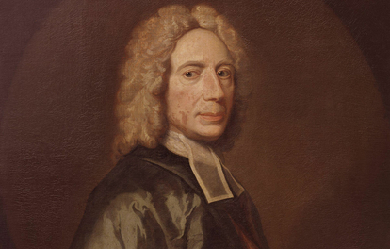
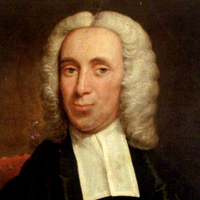
Isaac Watts (17 July 1674– 25 November 1748) was an English Christian minister, hymnwriter, theologian and logician. A prolific and popular hymn writer, his work was part of evangelization. He was recognized as the “Father of English Hymnody”, credited with some 750 hymns. Many of his hymns remain in use today and have been translated into numerous languages.


Edward James (Ted) Hughes was born in Mytholmroyd, in the West Riding district of Yorkshire, on August 17, 1930. His childhood was quiet and dominately rural. When he was seven years old, his family moved to the small town of Mexborough in South Yorkshire, and the landscape of the moors of that area informed his poetry throughout his life. Hughes graduated from Cambridge in 1954. A few years later, in 1956, he co-founded the literary magazine St. Botolph’s Review with a handful of other editors. At the launch party for the magazine, he met Sylvia Plath. A few short months later, on June 16, 1956, they were married.
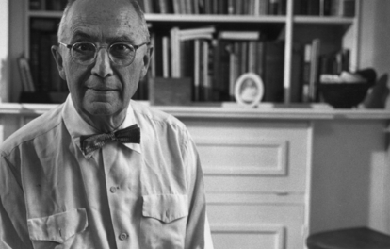
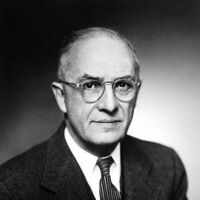
William Carlos Williams (September 17, 1883 – March 4, 1963) was an American poet closely associated with modernism and Imagism. He was also a pediatrician and general practitioner of medicine with a medical degree from the University of Pennsylvania School of Medicine. Williams "worked harder at being a writer than he did at being a physician" but excelled at both. Although his primary occupation was as a family doctor, Williams had a successful literary career as a poet. In addition to poetry (his main literary focus), he occasionally wrote short stories, plays, novels, essays, and translations. He practiced medicine by day and wrote at night. Early in his career, he briefly became involved in the Imagist movement through his friendships with Ezra Pound and H.D. (also known as Hilda Doolittle, another well-known poet whom he befriended while attending the University of Pennsylvania), but soon he began to develop opinions that differed from those of his poet/friends.
_and_brother_Ronald_-_Google_Art_Project.jpg)
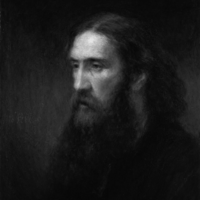
George MacDonald (10 December 1824– 18 September 1905) was a Scottish author, poet, and Christian minister. He was a pioneering figure in the field of fantasy literature and the mentor of fellow writer Lewis Carroll. His writings have been cited as a major literary influence by many notable authors including W. H. Auden, C. S. Lewis, J. R. R. Tolkien, Walter de la Mare, E. Nesbit and Madeleine L’Engle. C. S. Lewis wrote that he regarded MacDonald as his “master”: “Picking up a copy of Phantastes one day at a train-station bookstall, I began to read. A few hours later,” said Lewis, “I knew that I had crossed a great frontier.” G. K. Chesterton cited The Princess and the Goblin as a book that had “made a difference to my whole existence”. Elizabeth Yates wrote of Sir Gibbie, “It moved me the way books did when, as a child, the great gates of literature began to open and first encounters with noble thoughts and utterances were unspeakably thrilling.” Even Mark Twain, who initially disliked MacDonald, became friends with him, and there is some evidence that Twain was influenced by MacDonald. Christian author Oswald Chambers (1874–1917) wrote in Christian Disciplines, vol. 1, (pub. 1934) that “it is a striking indication of the trend and shallowness of the modern reading public that George MacDonald’s books have been so neglected”. In addition to his fairy tales, MacDonald wrote several works on Christian apologetics including several that defended his view of Christian Universalism. Early life George MacDonald was born on 10 December 1824 at Huntly, Aberdeenshire, Scotland. His father, a farmer, was one of the MacDonalds of Glen Coe, and a direct descendant of one of the families that suffered in the massacre of 1692. The Doric dialect of the Aberdeenshire area appears in the dialogue of some of his non-fantasy novels. MacDonald grew up in the Congregational Church, with an atmosphere of Calvinism. But MacDonald never felt comfortable with some aspects of Calvinist doctrine; indeed, legend has itt that when the doctrine of predestination was first explained to him, he burst into tears (although assured that he was one of the elect). Later novels, such as Robert Falconer and Lilith, show a distaste for the idea that God’s electing love is limited to some and denied to others. MacDonald graduated from the University of Aberdeen, and then went to London, studying at Highbury College for the Congregational ministry. In 1850 he was appointed pastor of Trinity Congregational Church, Arundel, but his sermons (preaching God’s universal love and the possibility that none would, ultimately, fail to unite with God) met with little favour and his salary was cut in half. Later he was engaged in ministerial work in Manchester. He left that because of poor health, and after a short sojourn in Algiers he settled in London and taught for some time at the University of London. MacDonald was also for a time editor of Good Words for the Young, and lectured successfully in the United States during 1872–1873. Work George MacDonald’s best-known works are Phantastes, The Princess and the Goblin, At the Back of the North Wind, and Lilith, all fantasy novels, and fairy tales such as “The Light Princess”, “The Golden Key”, and “The Wise Woman”. “I write, not for children,” he wrote, “but for the child-like, whether they be of five, or fifty, or seventy-five.” MacDonald also published some volumes of sermons, the pulpit not having proved an unreservedly successful venue. MacDonald also served as a mentor to Lewis Carroll (the pen-name of Rev. Charles Lutwidge Dodgson); it was MacDonald’s advice, and the enthusiastic reception of Alice by MacDonald’s many sons and daughters, that convinced Carroll to submit Alice for publication. Carroll, one of the finest Victorian photographers, also created photographic portraits of several of the MacDonald children. MacDonald was also friends with John Ruskin and served as a go-between in Ruskin’s long courtship with Rose La Touche. MacDonald was acquainted with most of the literary luminaries of the day; a surviving group photograph shows him with Tennyson, Dickens, Wilkie Collins, Trollope, Ruskin, Lewes, and Thackeray. While in America he was a friend of Longfellow and Walt Whitman. In 1877 he was given a civil list pension. From 1879 he and his family moved to Bordighera in a place much loved by British expatriates, the Riviera dei Fiori in Liguria, Italy, almost on the French border. In that locality there also was an Anglican Church, which he attended. Deeply enamoured of the Riviera, he spent there 20 years, writing almost half of his whole literary production, especially the fantasy work. In that Ligurian town MacDonald founded a literary studio named Casa Coraggio (Bravery House), which soon became one of the most renowned cultural centres of that period, well attended by British and Italian travellers, and by locals. In that house representations were often held of classic plays, and readings were given of Dante and Shakespeare. In 1900 he moved into St George’s Wood, Haslemere, a house designed for him by his son, Robert Falconer MacDonald, and the building overseen by his eldest son, Greville MacDonald. He died on 18 September 1905 in Ashtead, (Surrey). He was cremated and his ashes buried in Bordighera, in the English cemetery, along with his wife Louisa and daughters Lilia and Grace. As hinted above, MacDonald’s use of fantasy as a literary medium for exploring the human condition greatly influenced a generation of such notable authors as C. S. Lewis (who featured him as a character in his The Great Divorce), J. R. R. Tolkien, and Madeleine L’Engle. MacDonald’s non-fantasy novels, such as Alec Forbes, had their influence as well; they were among the first realistic Scottish novels, and as such MacDonald has been credited with founding the “kailyard school” of Scottish writing. His son Greville MacDonald became a noted medical specialist, a pioneer of the Peasant Arts movement, and also wrote numerous fairy tales for children. Greville ensured that new editions of his father’s works were published. Another son, Ronald MacDonald, was also a novelist. Ronald’s son, Philip MacDonald, (George MacDonald’s grandson) became a very well known Hollywood screenwriter. Theology MacDonald rejected the doctrine of penal substitutionary atonement as developed by John Calvin, which argues that Christ has taken the place of sinners and is punished by the wrath of God in their place, believing that in turn it raised serious questions about the character and nature of God. Instead, he taught that Christ had come to save people from their sins, and not from a Divine penalty for their sins. The problem was not the need to appease a wrathful God but the disease of cosmic evil itself. George MacDonald frequently described the Atonement in terms similar to the Christus Victor theory. MacDonald posed the rhetorical question, “Did he not foil and slay evil by letting all the waves and billows of its horrid sea break upon him, go over him, and die without rebound—spend their rage, fall defeated, and cease? Verily, he made atonement!” MacDonald was convinced that God does not punish except to amend, and that the sole end of His greatest anger is the amelioration of the guilty. As the doctor uses fire and steel in certain deep-seated diseases, so God may use hell-fire if necessary to heal the hardened sinner. MacDonald declared, “I believe that no hell will be lacking which would help the just mercy of God to redeem his children.” MacDonald posed the rhetorical question, “When we say that God is Love, do we teach men that their fear of Him is groundless?” He replied, “No. As much as they fear will come upon them, possibly far more.... The wrath will consume what they call themselves; so that the selves God made shall appear.” However, true repentance, in the sense of freely chosen moral growth, is essential to this process, and, in MacDonald’s optimistic view, inevitable for all beings (see universal reconciliation). He recognised the theoretical possibility that, bathed in the eschatological divine light, some might perceive right and wrong for what they are but still refuse to be transfigured by operation of God’s fires of love, but he did not think this likely. In this theology of divine punishment, MacDonald stands in opposition to Augustine of Hippo, and in agreement with the Greek Church Fathers Clement of Alexandria, Origen, and St. Gregory of Nyssa, although it is unknown whether MacDonald had a working familiarity with Patristics or Eastern Orthodox Christianity. At least an indirect influence is likely, because F. D. Maurice, who influenced MacDonald, knew the Greek Fathers, especially Clement, very well. MacDonald states his theological views most distinctly in the sermon Justice found in the third volume of Unspoken Sermons. In his introduction to George MacDonald: An Anthology, C. S. Lewis speaks highly of MacDonald’s theology: “This collection, as I have said, was designed not to revive MacDonald’s literary reputation but to spread his religious teaching. Hence most of my extracts are taken from the three volumes of Unspoken Sermons. My own debt to this book is almost as great as one man can owe to another: and nearly all serious inquirers to whom I have introduced it acknowledge that it has given them great help—sometimes indispensable help toward the very acceptance of the Christian faith. ... I know hardly any other writer who seems to be closer, or more continually close, to the Spirit of Christ Himself. Hence his Christ-like union of tenderness and severity. Nowhere else outside the New Testament have I found terror and comfort so intertwined.... In making this collection I was discharging a debt of justice. I have never concealed the fact that I regarded him as my master; indeed I fancy I have never written a book in which I did not quote from him. But it has not seemed to me that those who have received my books kindly take even now sufficient notice of the affiliation. Honesty drives me to emphasize it.” Bibliography Fantasy * Phantastes: A Fairie Romance for Men and Women (1858) * “Cross Purposes” (1862) * Adela Cathcart (1864), containing “The Light Princess”, “The Shadows”, and other short stories * The Portent: A Story of the Inner Vision of the Highlanders, Commonly Called “The Second Sight” (1864) * Dealings with the Fairies (1867), containing “The Golden Key”, “The Light Princess”, “The Shadows”, and other short stories * At the Back of the North Wind (1871) * Works of Fancy and Imagination (1871), including Within and Without, “Cross Purposes”, “The Light Princess”, “The Golden Key”, and other works * The Princess and the Goblin (1872) * The Wise Woman: A Parable (1875) (Published also as “The Lost Princess: A Double Story”; or as “A Double Story”.) * The Gifts of the Child Christ and Other Tales (1882; republished as Stephen Archer and Other Tales) * The Day Boy and the Night Girl (1882) * The Princess and Curdie (1883), a sequel to The Princess and the Goblin * The Flight of the Shadow (1891) * Lilith: A Romance (1895) Realistic fiction * David Elginbrod (1863; republished as The Tutor’s First Love), originally published in three volumes * Alec Forbes of Howglen (1865; republished as The Maiden’s Bequest) * Annals of a Quiet Neighbourhood (1867) * Guild Court: A London Story (1868) * Robert Falconer (1868; republished as The Musician’s Quest) * The Seaboard Parish (1869), a sequel to Annals of a Quiet Neighbourhood * Ranald Bannerman’s Boyhood (1871) * Wilfrid Cumbermede (1871–72) * The Vicar’s Daughter (1871–72), a sequel to Annals of a Quiet Neighborhood and The Seaboard Parish * The History of Gutta Percha Willie, the Working Genius (1873), usually called simply Gutta Percha Willie * Malcolm (1875) * St. George and St. Michael (1876) * Thomas Wingfold, Curate (1876; republished as The Curate’s Awakening) * The Marquis of Lossie (1877; republished as The Marquis’ Secret), the second book of Malcolm * Paul Faber, Surgeon (1879; republished as The Lady’s Confession), a sequel to Thomas Wingfold, Curate * Sir Gibbie (1879; republished as The Baronet’s Song) * Mary Marston (1881; republished as A Daughter’s Devotion) * Warlock o’ Glenwarlock (1881; republished as Castle Warlock and The Laird’s Inheritance) * Weighed and Wanting (1882; republished as A Gentlewoman’s Choice) * Donal Grant (1883; republished as The Shepherd’s Castle), a sequel to Sir Gibbie * What’s Mine’s Mine (1886; republished as The Highlander’s Last Song) * Home Again: A Tale (1887; republished as The Poet’s Homecoming) * The Elect Lady (1888; republished as The Landlady’s Master) * A Rough Shaking (1891) * There and Back (1891; republished as The Baron’s Apprenticeship), a sequel to Thomas Wingfold, Curate and Paul Faber, Surgeon * Heather and Snow (1893; republished as The Peasant Girl’s Dream) * Salted with Fire (1896; republished as The Minister’s Restoration) * Far Above Rubies (1898) Poetry * Twelve of the Spiritual Songs of Novalis (1851), privately printed translation of the poetry of Novalis * Within and Without: A Dramatic Poem (1855) * Poems (1857) * “A Hidden Life” and Other Poems (1864) * “The Disciple” and Other Poems (1867) * Exotics: A Translation of the Spiritual Songs of Novalis, the Hymn-book of Luther, and Other Poems from the German and Italian (1876) * Dramatic and Miscellaneous Poems (1876) * Diary of an Old Soul (1880) * A Book of Strife, in the Form of the Diary of an Old Soul (1880), privately printed * The Threefold Cord: Poems by Three Friends (1883), privately printed, with Greville Matheson and John Hill MacDonald * Poems (1887) * The Poetical Works of George MacDonald, 2 Volumes (1893) * Scotch Songs and Ballads (1893) * Rampolli: Growths from a Long-planted Root (1897) Nonfiction * Unspoken Sermons (1867) * England’s Antiphon (1868, 1874) * The Miracles of Our Lord (1870) * Cheerful Words from the Writing of George MacDonald (1880), compiled by E. E. Brown * Orts: Chiefly Papers on the Imagination, and on Shakespeare (1882) * “Preface” (1884) to Letters from Hell (1866) by Valdemar Adolph Thisted * The Tragedie of Hamlet, Prince of Denmarke: A Study With the Test of the Folio of 1623 (1885) * Unspoken Sermons, Second Series (1885) * Unspoken Sermons, Third Series (1889) * A Cabinet of Gems, Cut and Polished by Sir Philip Sidney; Now, for the More Radiance, Presented Without Their Setting by George MacDonald (1891) * The Hope of the Gospel (1892) * A Dish of Orts (1893) * Beautiful Thoughts from George MacDonald (1894), compiled by Elizabeth Dougall In popular culture * (Alphabetical by artist) * Christian celtic punk band Ballydowse have a song called “George MacDonald” on their album Out of the Fertile Crescent. The song is both taken from MacDonald’s poem “My Two Geniuses” and liberally quoted from Phantastes. * American classical composer John Craton has utilized several of MacDonald’s stories in his works, including “The Gray Wolf” (in a tone poem of the same name for solo mandolin– 2006) and portions of “The Cruel Painter”, Lilith, and The Light Princess (in Three Tableaux from George MacDonald for mandolin, recorder, and cello– 2011). * Contemporary new-age musician Jeff Johnson wrote a song titled “The Golden Key” based on George MacDonald’s story of the same name. He has also written several other songs inspired by MacDonald and the Inklings. * Jazz pianist and recording artist Ray Lyon has a song on his CD Beginning to See (2007), called “Up The Spiral Stairs”, which features lyrics from MacDonald’s 26 and 27 September devotional readings from the book Diary of an Old Soul. * A verse from The Light Princess is cited in the “Beauty and the Beast” song by Nightwish. * Rock group The Waterboys titled their album Room to Roam (1990) after a passage in MacDonald’s Phantastes, also found in Lilith. The title track of the album comprises a MacDonald poem from the text of Phantastes set to music by the band. The novels Lilith and Phantastes are both named as books in a library, in the title track of another Waterboys album, Universal Hall (2003). (The Waterboys have also quoted from C. S. Lewis in several songs, including “Church Not Made With Hands” and “Further Up, Further In”, confirming the enduring link in modern pop culture between MacDonald and Lewis.) References Wikipedia—https://en.wikipedia.org/wiki/George_MacDonald
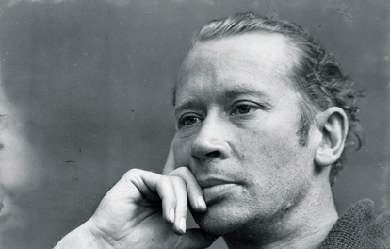
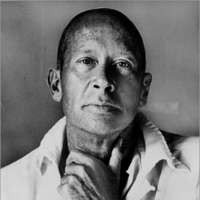
Edward Estlin Cummings (October 14, 1894 – September 3, 1962), popularly known as E. E. Cummings, with the abbreviated form of his name often written by others in lowercase letters as e.e. cummings (in the style of some of his poems—see name and capitalization, below), was an American poet, painter, essayist, author, and playwright. His body of work encompasses approximately 2,900 poems, two autobiographical novels, four plays and several essays, as well as numerous drawings and paintings. He is remembered as a preeminent voice of 20th century poetry.

I'm a teenage experimental poet, song writer, and author. I come from a good home but a not so good past. I explain myself through poetry and writing, because there is no other way to described me. I'm just awkward. I have severe depression and anxiety, along with other problems and struggles, and writing helps ease it all. I have love and passion for my work, and I plan on becoming a published author in the future. I try to use all senses of perspective in my writing; I wish to help change the world one poem at a time. ***PLEASE DO NOT COPYRIGHT WHAT IS PUBLISHED ON THIS BLOG. ONLY SHARE UNDER MY NAME AND ESTABLISH CORRECT OWNERSHIP. I CLAIM THESE WORKS AS MY OWN AND UNDER NO CIRCUMSTANCES SHOULD I BE BLAMED FOR FRAUD, OR HAVE PERSONS DENY ME MY RIGHTS BECAUSE OF MY AGE AND SOCIAL STANDING. MY WRITINGS, MY NAME, MY STORY, MY RIGHT. PLEASE RESPECT MY OWNERSHIP AND RESPECT MY WISHES AS A YOUNG ADULT WRITER.*** ~THANK YOU~
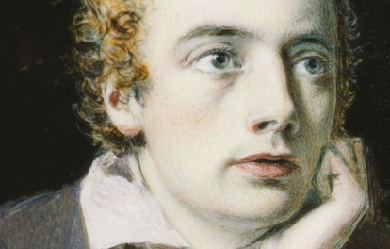
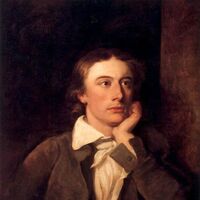
English Romantic poet John Keats was born on October 31, 1795, in London. The oldest of four children, he lost both his parents at a young age. His father, a livery-stable keeper, died when Keats was eight; his mother died of tuberculosis six years later. After his mother's death, Keats's maternal grandmother appointed two London merchants, Richard Abbey and John Rowland Sandell, as guardians. Abbey, a prosperous tea broker, assumed the bulk of this responsibility, while Sandell played only a minor role. When Keats was fifteen, Abbey withdrew him from the Clarke School, Enfield, to apprentice with an apothecary-surgeon and study medicine in a London hospital. In 1816 Keats became a licensed apothecary, but he never practiced his profession, deciding instead to write poetry.
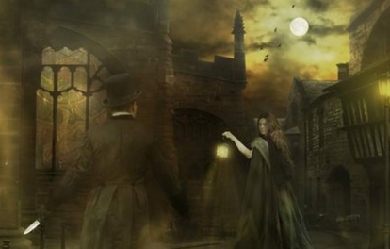

I am an enthusiastic scholar of American, Irish, and English history, Victorian literature, myths, legends, folklore, and Pagan religions. My prose and poetry are generally Gothic in theme and usually set in historical periods. My favourite authors are Edgar Allen Poe, Samuel Clemens, Charles Dickens, Henry James, Sir Arthur Conan Doyle, H.P. Lovecraft, M. R. James, Washington Irving, and Oscar Wilde, just to name a few, and my favourite poets are Keats, Byron, Yeats, Wordsworth, Tennyson, and Longfellow. I have three books of poetry currently on the market, three Gothic novels, one anthology of six horror stories, and several novellas and novelettes. I was raised in Wheatridge, Colorado and attended The University of Colorado at Denver. I currently live in Corvallis, Montana in the great Pacific Northwest.


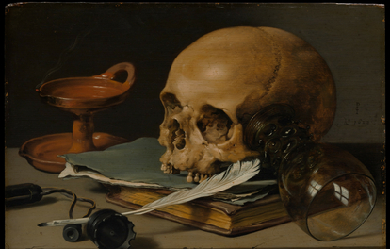





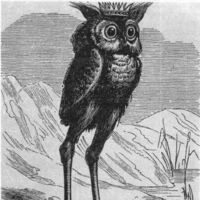
.jpg)






